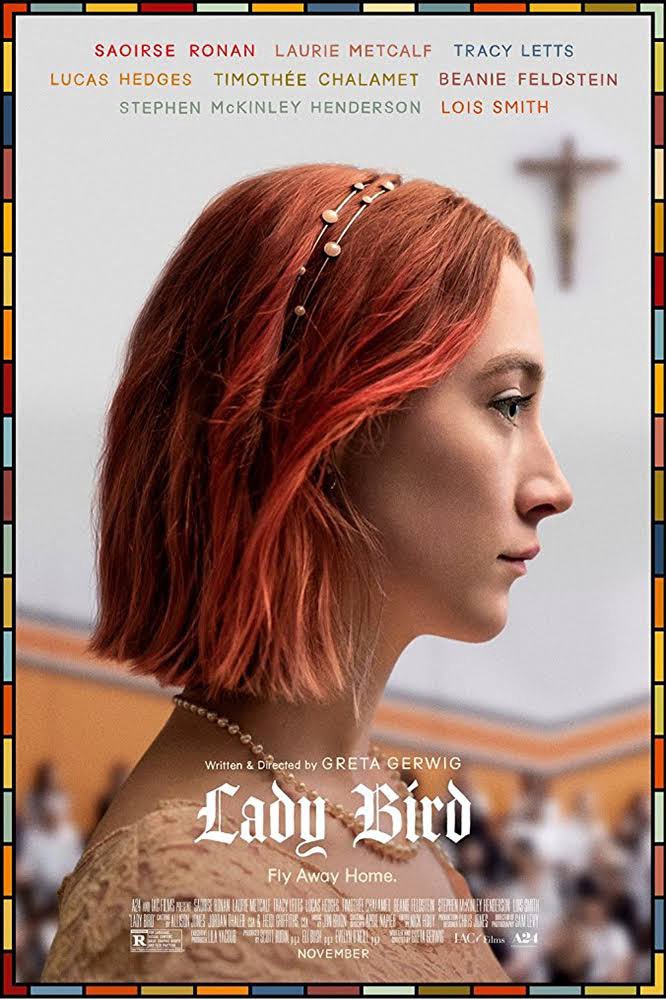Breaking down the two big Golden Globe winners, ‘Lady Bird’
and ‘Three Billboards Outside Ebbing, Missouri.’

Two movies took home the most coveted prizes at the Golden Globes this weekend. Greta Gerwig’s Lady Bird took home the sphere for Best Motion Picture — Musical or Comedy, and Martin McDonagh’s Three Billboards Outside Ebbing, Missouri claimed the prize for Best Motion Picture — Drama.
This solidified the frontrunner status of the two films heading toward the Oscars. It’s not guaranteed, but it’s very likely one of these movies will be declared this year’s champ.
Billboards has the edge. The movies both scored wins for their lead actresses (Saoirse Ronan for Lady Bird and Frances McDormand for Billboards, both well-earned), though Billboards edged it out in the screenplay category and also scored Best Supporting Actor for Sam Rockwell. Plus, Academy voters usually prefer drama.
Let’s take a look at both.
Lady Bird
I’ll be upfront: I think Lady Bird is the vastly superior film.
There’s nothing standout about its plot — it’s a simple coming-of-age in senior year of high school storyline we’ve seen many times (last year’s Edge of Seventeen had the same story, though less awards success).
Saoirse Ronan (whose name eludes pronunciation) plays a nightmare of a teenage girl (her name is Christine, though she insists everyone calls her the movie’s title). Christine lives in Sacramento, a city she claims is the most boring place on the planet, and dreams of continuing her education at competitive schools in New York City — schools she has no chance of getting admitted to.
What starts out as a straightforward story stays just that. Then, quietly and confidently, it becomes the movie’s greatest strength. There’s no particular moment where the film ascends its concept and becomes a tear-jerker. But the emotional pathos is so rewarding, only the hardest of viewers won’t be affected. Every character, subplot and line of dialogue is packed with some sort of emotional payoff.
Actress-turned-director Greta Gerwig made her solo directorial debut with the film, which makes it all the more impressive. The cast (Laurie Metcalf, Tracy Letts, Lucas Hedges, Beanie Feldstein) give unanimously excellent performances, especially Metcalf as Lady Bird’s mother, whose connection with Ronan provides most of the film’s conflict and success.
Lady Bird is not a celebration, but a reflection on those of us (everyone, really) who dreamed beyond their borders. It is, however, a celebration of the middle ground most of us settle in.
Three Billboards Outside Ebbing, Missouri
In terms of concept, Billboards far outclasses Lady Bird. It’s got a handle on being the socially and politically relevant movie of the year.
Martin McDonagh (In Bruges, Seven Psychopaths) directs the story of a murder in small-town middle America that goes unsolved by police. McDormand plays the seething mother who seeks retribution for her daughter. She rents a few billboards (try to guess how many, and where) to call out Sheriff Willoughby (Woody Harrelson) for not doing his job.
In a politically charged atmosphere where police are harshly scrutinized, a film tackling the issue was inevitable. Harrelson and Rockwell’s officers are written as caricatures when the story opens — Rockwell’s Officer Dixon actually carries around comic books and lives with his mother, and is often called racist by residents.
Thankfully, McDonagh’s screenplay (which won the Golden Globe, somehow) develops both officers. It’s not the movie’s intention to call out police — the opposite happens.
But every step of the way there is labored. McDonagh has no idea how to escalate tension between characters through dialogue itself — everything has to turn physical. Characters will abruptly flip tables, pull knives and threateningly wield wine bottles on a whim. It’s jarring, fake drama for the sake of adding excitement.
McDormand, Harrelson and Rockwell give rock-solid performances that save the script. McDormand builds an icy exterior and lets it melt at the best possible moments — she’s a fine recipient of her Golden Globe.
But even they can’t cover the inauthenticity of the movie. The audience isn’t left to draw their own conclusion — they’re clubbed into feeling an exact way by the time credits roll. There’s no finesse here. You can’t fake drama.
The verdict
The main difference between these two movies is concept versus execution. Billboards tells a story that humanizes police — something we may need a reminder of. But it fumbles the delivery hard. Lady Bird, meanwhile, tells a common story powerfully enough to leave a lasting impression on audiences. It’s pathos all audience members can identify with. Take your pick. ••




